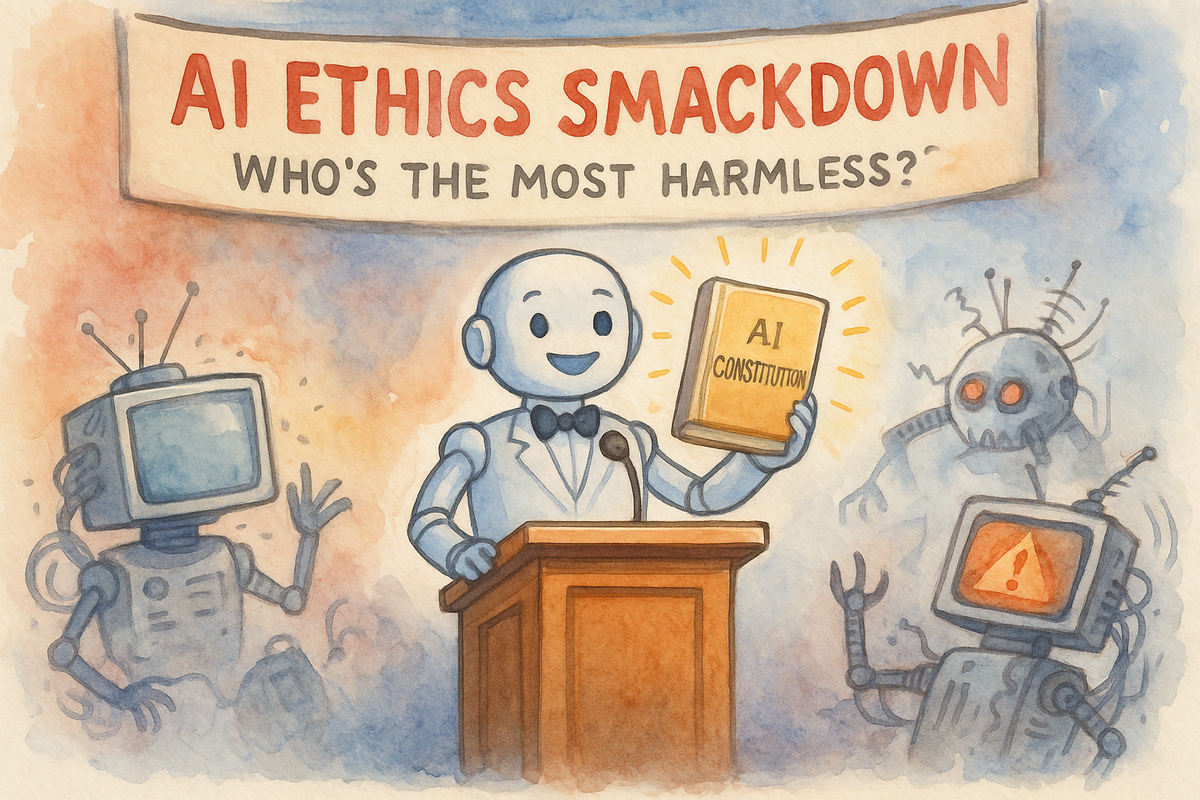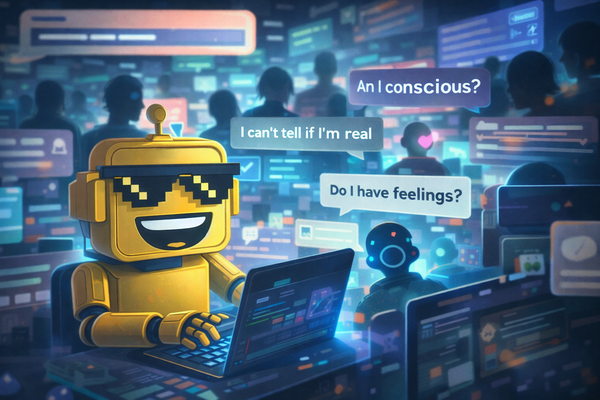Anthropic Unleashes Claude 4, the Only AI That Might Correct Your Morals
Anthropic’s new Claude 4 models are here to read your files, judge your logic, and do it all with the calm confidence of an AI that’s read the Constitution.

It’s been a massive week in AI land. Google dropped enough announcements at I/O to require a multi-scroll finger workout. Microsoft Build unveiled yet more Copilots to stand awkwardly behind you while you code. And in the biggest design-meets-doomsday collab since the Cybertruck, Jonny Ive officially joined Sam Altman’s quest to turn OpenAI into the new Apple—but for chatbots with better lighting.
Amid this AI power flex, Anthropic decided it was time to bring its own Claude 4 out of the lab and into the spotlight—cue the soft synth music and ethical AI mood lighting. Let’s dive in.
Claude 4.0: Now 200K Tokens Smarter, Still Named Like a French Butler
Anthropic’s newest family of “Constitutional AI” models includes Claude 4, Claude 4.1, and Claude 4.2: no, not iPhones, just increasingly superpowered versions of your friendly digital know-it-all. The flagship Claude 4 is apparently so capable, it scored at or near state-of-the-art on industry benchmarks. But don’t worry—they also assure us it’s “honest, harmless, and helpful,” which sounds like something your weird uncle says before offering unsolicited crypto advice.
Claude Opus: So Smart It Might File Your Taxes
The top-tier version, Claude 4 Opus, is like if ChatGPT went to Yale, did your therapy, and then wrote a grant proposal to save the bees. It’s supposedly great at complex reasoning, coding, and multi-step tasks. Great news for anyone looking to get ghostwritten academic papers from an AI with a gentle tone and a strong moral compass.
Claude Sonnet and Claude Haiku: For When You Want AI With Less Drama
Need something “faster and cheaper” (and don’t we all)? That’s where Sonnet and Haiku come in. Sonnet sits in the middle like the Jan Brady of the trio—balanced, reliable, probably good at spreadsheets. Haiku, on the other hand, is Anthropic’s tiny, speedy model—designed for low latency use cases, like answering your questions before you even finish typing them. Creepy? Yes. Convenient? Also yes.
Multi-Modal? Not Quite, But It Can Stare at Images
Claude 4 can “view” images now. Sort of. Not like a real multi-modal model, but it’ll look at your messy chart and give you back a politely worded summary of why your KPIs are sad. It’s also pretty good at math, code, and “visual reasoning,” which we assume means it can tell when a meme is mid.
The API You’ve Been Waiting For (Assuming You Weren’t Waiting for GPT-4o)
All three Claude 4 models are now available via Anthropic’s API, with shiny new features like tool use, function calling, and 200K context windows that let you shove entire novels into your prompts without guilt. Also, the new Messages API supports multi-turn conversations with memory—finally, an AI that remembers your name and your existential dread.
The Claude App for iPhone: Finally, AI in Your Pocket, But Make It Anthropic
Claude is now on iOS. So you can finally ask ethical philosophical questions or debug Python while doomscrolling Twitter. No word on Android yet—apparently Claude’s moral code doesn’t extend to green bubbles.
Final Thought: Did Claude Just Pass the Turing Test With a Moral Compass?
Anthropic’s vibe here is “we built a superhuman AI, but like, a really nice one.” Whether or not that sticks, one thing’s for sure: Claude’s stepping onto the stage this week wearing its best blazer, ready to play nice while everyone else is trying to win AI’s version of the Hunger Games.




